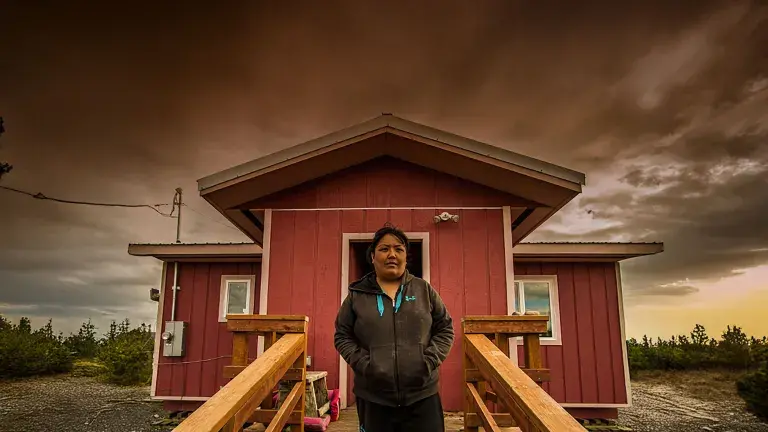
Protecting Native Women Today and Tomorrow
The Indian Law Resource Center and the National Indigenous Women’s Resource Center are partnering to raise awareness and help end violence against Native women. The resources at www.indianlaw.org and www.niwrc.org -- including videos, posters, Facebook banners, FAQs, and a domestic violence toolkit -- were created to support and inform advocates, tribal leaders, lawmakers, and the public in dialogue on this critical issue.
SURVIVOR STORIES
Evaline Smith, a member of the La Jolla Band of Luiseño Indians in California, has experienced abuse, addiction, and run-ins with the law, but now she’s a survivor who is learning to heal and help others avoid domestic violence. MORE>>
Lisa Frank, Gwich’in, finds strength from her Native culture to speak up for women who have been the victims of sexual assault and domestic abuse. Assaulted years earlier as a college student, she now works to make sure Native women, including her own daughter, are safe in Alaska, where a Native woman is assaulted every 18 hours. MORE>>
Sheila Harjo survived 8 years of abuse by her former husband. Today, as First Lady of The Seminole Nation of Oklahoma and Councilwoman, she has helped her tribe establish a shelter for abused women and their children and develop a program to break the cycle of abuse she says is all too common among Native families. MORE>>
NATIVE LOVE
Raelyn Rodriguez is a member of the Rincon Band of Luiseño Indians and resides on the Rincon Indian Reservation in northeastern San Diego County, California. MORE>>
Six Native people living in Alaska — Sam Alexander (Gwich’in), Princess Lucaj (Gwich’in), Allan Hayton (Gwich’in), Jessica Black (Gwich’in), Sarah James (Gwich’in), and David Farley (Omaha) — reflect on the meaning of Native love. MORE>>
Jalisa Ross (Creek, Cherokee, and Otoe-Missouri) is a senior at Oklahoma City University, where she is the reigning Miss Indian OCU. She believes Native love includes the ability to walk in grace; to humble oneself to serve and protect others. MORE>>
Justin Secakuku, a member of the Hopi Tribe of Arizona, shares the Hopi view of white corn, known as the corn mother, and likens it to the value of women in Native communities to give and produce life. MORE>>